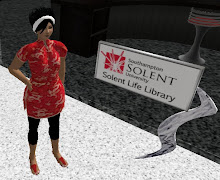
 Business librarians will be around until 12 noon on Christmas Eve and back again on Wednesday 4th Jan. If you have any enquiries over the holiday please email us and we'll get back to you as soon as we can.
Business librarians will be around until 12 noon on Christmas Eve and back again on Wednesday 4th Jan. If you have any enquiries over the holiday please email us and we'll get back to you as soon as we can.
Reflections on being a business librarian.
"Web 2.0 is an attitude not a technology. It’s about enabling and encouraging participation through open applications and services. By open I mean technically open... but also, more importantly, socially open, with rights granted to use the content in new and exciting contexts. Of course the web has always been about participation, and would be nothing without it. It’s single greatest achievement, the networked hyperlink, encouraged participation from the start. Somehow, through the late nineties, the web lost contact with its roots and selfish interests took hold. This is why I think the Web 2.0 label is cunning: semantically it links us back to that original web and the ideals it championed, but at the same time it implies regeneration with a new version. Technology has moved on and it’s important that the social face of the web keeps pace."This was originally posted by Ian Davis but I found it quoted on a Business Week blog by Rob Hof who says
"the term has helped define a new generation of technologies whose social nature differs qualitatively from the broadcast-oriented first generation of Web technologies."
Some key features of Web 2.0
"Library 2.0 is a concept of a very different library service that operates according to the expectations of today’s library users. In this vision, the library makes information available wherever and whenever the user requires it."It looks like this is going to be major subject of debate in the library and information world.
